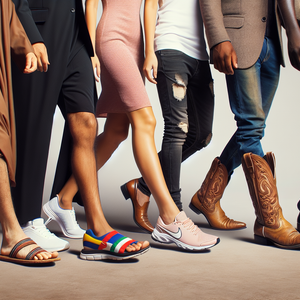The Role of Super Bowl Sunday in American Pop Culture

One of the most prominent aspects of Super Bowl Sunday is its role as a social gathering. For many Americans, the day is synonymous with parties, where friends and family come together to celebrate not just the game, but also the camaraderie that it fosters. According to a survey by the National Chicken Council, Americans consume an estimated 1.42 billion chicken wings on Super Bowl Sunday, highlighting the culinary significance of the event. These gatherings provide an opportunity for people to connect, share food, and engage in friendly competition through informal betting or prediction games. Moreover, the event has become a holiday in its own right, leading to company-sponsored parties and themed events. For instance, many workplaces hold potluck lunches or organize viewing parties, reflecting the cultural significance of Super Bowl Sunday. This trend is not only about watching the game but also about the collective experience of celebration, akin to Thanksgiving or New Year's Eve, where food, fun, and friendship take center stage.
Media Coverage and Cultural Commentary
The media coverage surrounding the Super Bowl has evolved into a spectacle of its own. Major news outlets and entertainment shows dedicate extensive coverage leading up to the event, discussing everything from team statistics to the latest celebrity gossip. The halftime show, often featuring some of the biggest names in music, garners significant attention and is analyzed for its cultural impact. For example, Beyoncé's halftime performance in 2016 was praised not only for its artistic merit but also for its political statements regarding race and feminism. This media frenzy creates a cultural commentary that resonates with viewers, allowing them to engage with the event on multiple levels. The conversations generated around the Super Bowl often extend beyond the game itself, touching on societal issues, trends, and the intersection of various forms of entertainment. Furthermore, the pre-game shows, which often feature interviews with players and coaches, as well as celebrity appearances, create a buzz that captivates audiences long before the kickoff.
Blending Sports and Entertainment
The Super Bowl has increasingly blurred the lines between sports and entertainment, transforming into a showcase for celebrity culture. High-profile performers like Lady Gaga, Shakira, and The Weeknd have elevated the halftime show into a must-watch event, often overshadowing the game itself in terms of public interest. This blending of sports and entertainment reflects broader trends in media consumption, where audiences seek comprehensive experiences that encompass various facets of culture. Additionally, Super Bowl commercials have become an integral part of the viewing experience, with brands investing millions to produce memorable ads that resonate with audiences. The commercials often feature celebrity endorsements and humorous narratives, creating a shared experience for viewers who eagerly anticipate the ad breaks as much as the game. For example, the 2020 Super Bowl featured a commercial with Bill Murray reprising his role from "Groundhog Day," which resonated with audiences and sparked discussions on social media. This trend highlights the Super Bowl's role as a platform for innovative marketing strategies that tap into the cultural zeitgeist.
Super Bowl Sunday stands as a testament to the power of sports in shaping American pop culture. It has grown into a significant social event that fosters community bonding, serves as a platform for media commentary, and blurs the lines between sports and entertainment. Whether through the excitement of the game, the extravagance of the halftime show, or the creativity of commercials, the Super Bowl captures the essence of American culture, making it a day that resonates with millions across the nation. As the event continues to evolve, it will undoubtedly maintain its status as a cornerstone of American pop culture, reflecting the changing dynamics of society and collective experience. The enduring legacy of Super Bowl Sunday is its ability to unite people, create shared memories, and reflect the cultural narrative of a nation that thrives on entertainment and community.
Event Marketing Manager
Sports teams, advertising agencies, entertainment companies, and event planning firms
Core Responsibilities
Develop and execute marketing strategies for large-scale events, including Super Bowl-related activities.
Collaborate with sponsors and partners to create engaging promotional campaigns that enhance brand visibility.
Oversee event logistics, budgeting, and post-event analysis to measure success and ROI.
Required Skills
Strong project management and organizational skills.
Proficiency in digital marketing tools and social media platforms.
Excellent communication and negotiation abilities.
Cultural Analyst
Research firms, media companies, universities, and think tanks
Core Responsibilities
Research and analyze the impact of major cultural events, such as the Super Bowl, on societal trends and behaviors.
Prepare reports and presentations that provide insights into audience engagement and cultural significance.
Collaborate with media outlets to provide commentary and expert opinions on related topics.
Required Skills
Strong analytical and critical thinking skills.
Excellent written and verbal communication skills, with the ability to convey complex ideas clearly.
Background in sociology, anthropology, or cultural studies preferred.
Commercial Production Coordinator
Advertising agencies, film production companies, and corporate marketing departments
Core Responsibilities
Coordinate the production of commercials for high-profile events, ensuring timely delivery and adherence to brand guidelines.
Liaise with creative teams, directors, and clients to manage project timelines and budgets.
Oversee the logistics of casting, location scouting, and equipment rentals for commercial shoots.
Required Skills
Strong organizational skills with the ability to manage multiple projects simultaneously.
Familiarity with film production processes and post-production workflows.
Excellent communication and teamwork skills.
Social Media Strategist
Media companies, sports franchises, marketing agencies, and consumer brands
Core Responsibilities
Develop and implement social media campaigns surrounding major events, including the Super Bowl, to drive engagement and brand awareness.
Create compelling content that resonates with diverse audiences and encourages sharing and interaction.
Monitor social media trends and analytics to refine strategies and enhance performance.
Required Skills
Expertise in social media platforms and analytics tools.
Strong writing skills with a creative flair for storytelling.
Ability to work under tight deadlines and adapt to changing trends.
Sports Journalist
Newspapers, magazines, online sports media outlets, and broadcasting companies
Core Responsibilities
Report on sporting events, including the Super Bowl, providing analysis and commentary for various media platforms.
Conduct interviews with athletes, coaches, and fans to gather insights and perspectives.
Write articles and create multimedia content that engages audiences and enhances their understanding of sports culture.
Required Skills
Strong writing and editorial skills, with the ability to meet deadlines.
In-depth knowledge of sports and current events, as well as the ability to analyze and interpret data.
Experience with digital media production tools for creating engaging content.


